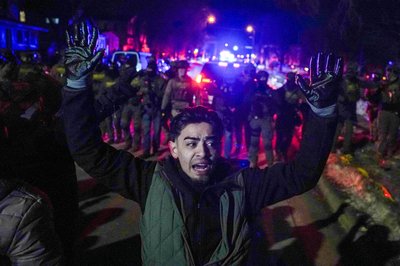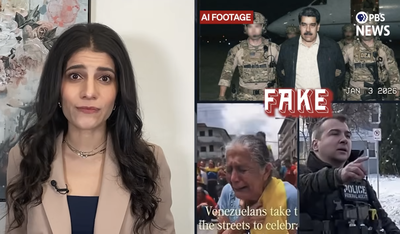NOTE: If you are short on time, watch the video and complete this bell ringer activity: What did you notice? What did the story make you think about? What would you want to learn more about?
SUMMARY
President Trump’s new tax and spending law brings sweeping changes to the federal student loan system, affecting both current and future borrowers. Nearly half a million borrowers could see their payments spike after the Department of Education scrapped most existing repayment plans. For a breakdown of what it all means, Geoff Bennett spoke with NPR education correspondent Cory Turner.
View the transcript of the story.
News alternative: Check out recent segments from the News Hour, and choose the story you’re most interested in watching. You can make a Google doc copy of discussion questions that work for any of the stories here.
Key terms
student loan — money borrowed to pay for college expenses that must be repaid, typically with added fees called interest.
interest — an additional cost charged by the lender to the borrower for using their money. It is usually calculated as a percentage of the amount borrowed, and it adds up over time until the loan is fully repaid.
borrowing cap — the maximum amount of money a person is allowed to borrow.
repayment plan — a scheduled plan outlining how a borrower will repay their student loan over time.
SAVE (Saving on a Valuable Education) repayment plan — a federal student loan repayment program introduced by the Biden administration.
loan forgiveness — when a portion of a borrower’s student loan debt is canceled, meaning they no longer have to repay that money back.
WARM-UP QUESTIONS
- Who is Cory Turner, and what is his background?
- What are the new borrowing caps for graduate students, those pursuing professional degrees and parent borrowers?
- How many repayment plans were available before this policy change, and how many will be available once these new rules take effect?
- Why are borrowers enrolled in the "Biden-era" SAVE repayment plan in a tricky situation, according to Cory Turner?
- When will interest start accruing again for borrowers enrolled in the SAVE repayment plan?
FOCUS QUESTIONS
- In what ways might changes to student loan policies influence students' decisions about which colleges to attend?
- What do you think about the cost of higher education, and what changes, if any, do you think should be made to the higher education system?
Media literacy: Who else would you have liked to hear from in this video, and how do you think their perspective could have helped you understand the issue from a different angle?
WHAT STUDENTS CAN DO
Watch the video below to learn more about how the new loan caps could negatively impact aspiring Black doctors.
Discuss:
- How do policies like loan caps affect the diversity and representation of underrepresented groups in medical professions, and what broader impacts might this have on healthcare overall?
- How can communities and policymakers work together to make higher education more accessible for students who come from lower socioeconomic backgrounds?
Written by Brooke Ingemi, PBS News Hour Classroom's intern and senior at Amherst College, and News Hour's Luke Gerwe.
Fill out this form to share your thoughts on Classroom’s resources.





